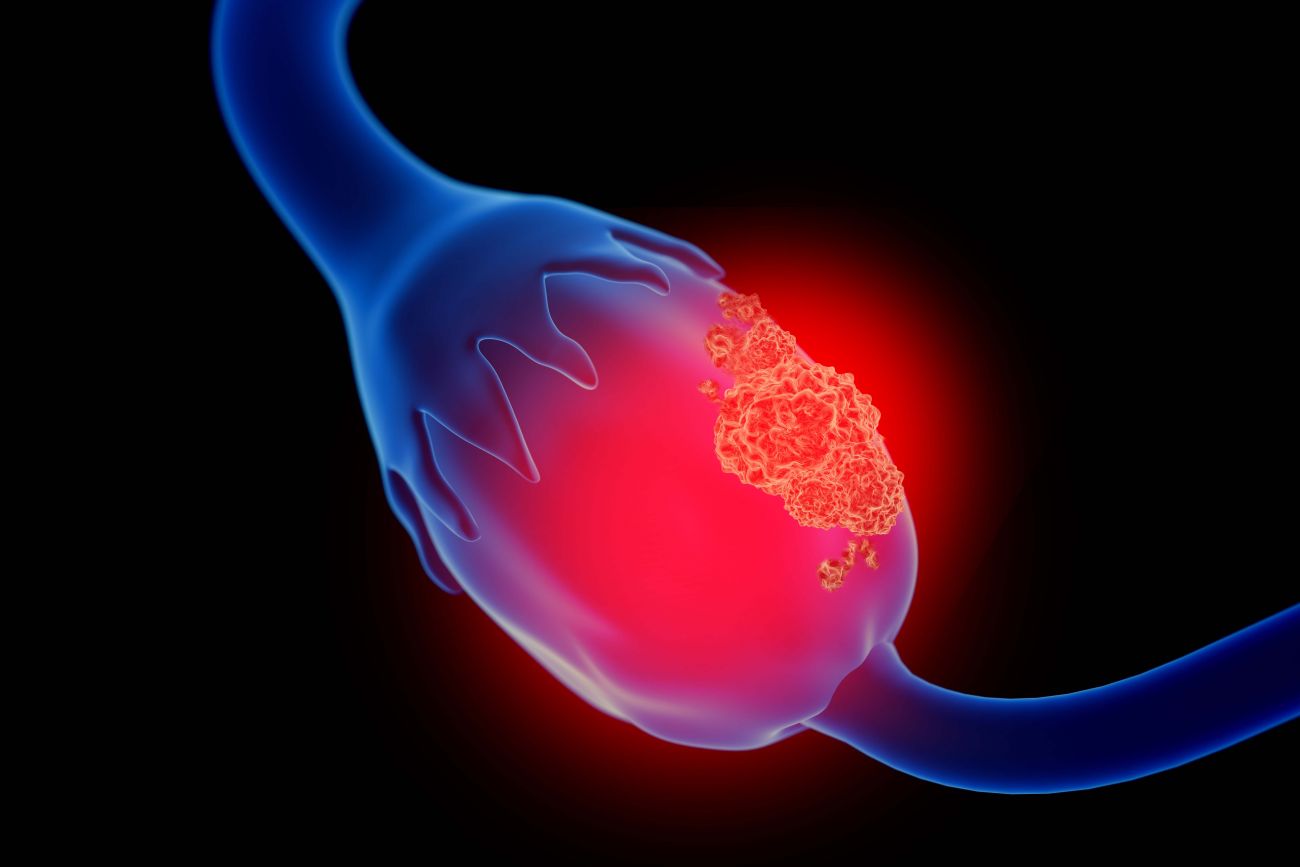Roswell Park-led study reveals benefits of combining adoptive cell therapy with immune checkpoint inhibitor
- Novel adoptive T cell therapy developed at Roswell Park
- Combination therapy designed to rally patient’s own immune system
- Clinical trial now in development
BUFFALO, N.Y. — Results of a study led by researchers at Roswell Park Comprehensive Cancer Center show that combining two types of immunotherapy — engineered T cells that secrete bispecific T cell engagers (BiTEs) and an immune checkpoint inhibitor — can alter the tumor microenvironment to launch a stronger attack against ovarian cancer and reduce the risk of relapse. The findings also demonstrate that this combination therapy can be supplemented with therapeutic cancer vaccines to further extend treatment responses.
“Our data suggest that changes in the tumor immune landscape after treatment are the key to unlocking the patient’s own immune system to produce lasting tumor control following adoptive T cell therapy,” says A. J. Robert McGray, PhD, Assistant Professor of Oncology and Immunotherapy in Roswell Park’s Department of Immunology and co-corresponding author of the study, which appears in Molecular Therapy.
“Ovarian cancer patients receive limited benefit from current immunotherapies,” adds Dr. McGray, who led the study with co-corresponding author Mark Long, PhD, Assistant Professor of Oncology, Department of Biostatistics and Bioinformatics. “We need new strategies that will help the immune system recognize and attack tumors.”
The research team, which included the study’s first author, Jessie Chiello, of the Department of Immunology at Roswell Park, as well as contributors from McMaster University, treated and analyzed both preclinical ovarian cancer models and tumor specimens donated by Roswell Park patients with ovarian cancer.
Ovarian tumor cells commonly express high levels of a protein called folate receptor alpha (FRα). Looking to the power of the immune system’s cancer-killing T cells, the investigators engineered FR-B T cells which secrete BiTEs that can zero in on the FRα-expressing cancer cells, destroy them, and rally the patient’s own T cells to join the attack.
The research team treated the donated tumor specimens and preclinical models using a combination of FR-B T cells and an immunotherapy called an immune checkpoint inhibitor, which “releases the brakes” on the immune system. They found that the combination altered multiple immune cell types in the tumor microenvironment throughout different phases of treatment to prolong the antitumor attack. This productive immune response differed dramatically from the immune landscape found in tumors that escaped immune control. Adding a booster vaccine after initial treatment further improved the antitumor immune response and provided greater tumor control, emphasizing the potential of cancer vaccines to be applied strategically as a combination therapy.
“What makes this study by the McGray and Long labs so compelling is the importance of developing innovative multi-modal immunotherapy combinations to overcome key barriers of treatment resistance in aggressive cancers, such as ovarian cancer,” says Scott Abrams, PhD, Chair of Immunology at Roswell Park.
The team expects to evaluate this FR-B T cell therapy in a Roswell Park clinical trial. Their preclinical findings to date provide an important foundation for understanding what leads to durable treatment response in ovarian cancer, as well as opportunities for combination therapy to further improve outcomes and prevent tumor recurrence.
This work was supported by the Ovarian Cancer Research Alliance; the Roswell Park Alliance Foundation; the National Cancer Institute (NCI awards P50CA159981, the Roswell Park/University of Chicago Ovarian Cancer SPORE award from the NCI, R50CA283805 and P30CA16056, Roswell Park’s Cancer Center Support Grant); the Department of Defense (DoD awards HT9425-25-1-0449 and HT9425-25-1-0450); and Roswell Park Comprehensive Cancer Center.
###
From the world’s first chemotherapy research to the PSA prostate cancer biomarker, Roswell Park Comprehensive Cancer Center generates innovations that shape how cancer is detected, treated and prevented worldwide. The Roswell Park team of 4,000+ makes compassionate, patient-centered cancer care and services accessible across New York State and beyond. Rated “Exceptional” by the National Cancer Institute, Roswell Park, founded in 1898, was one of the first NCI-designated comprehensive cancer centers in the country and remains the only one in Upstate New York. To learn more about Roswell Park Comprehensive Cancer Center and the Roswell Park Care Network, visit www.roswellpark.org, call 1-800-ROSWELL (1-800-767-9355) or email ASKRoswell@RoswellPark.org.
Jane Rose, Media Relations Specialist
716-845-4919; jane.rose@roswellpark.org


